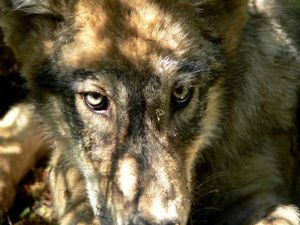Wolf hunting derby highlights myths of extremists
HUNTING -- I'm not big on contests that promote killing predators, but it's almost humorous to watch the reaction to the two-day wolf-coyote hunting derby being promoted for Dec. 28-29, out of Salmon, ID.
The controversy is like putting a spotlight on the extremist views of wolf reintroduction and the perpetuation of myths about wolves.
Sunday's story by the Associated Press did a decent job of pointing out the claims and the BS.
“This is a wolf massacre,” said Wayne Pacelle, the Washington, D.C.-based animal-rights group’s president, in a letter to members Thursday that was geared more to fundraising opportunity than to reality.
- Fact: Only 1-3 wolves are likely to be killed by the 300 or so hunters who are predicted to sign up. Wolf hunting has proved to be very difficult as detailed by Idaho Fish and Game Department wolf harvest statistics.
Shane McAfee, who guides clients on hunts around Salmon, Idaho, organized the derby mainly to boost local business and raise awareness about a parasite he believes could be transmitted from wolf feces to domestic dogs and possibly humans.
- Facts: “Echinococcus granulosis is one of many naturally occurring parasites that occur in wildlife,” said Idaho state epidemiologist Dr. Christine Hahn. Human infections are rarely reported in Idaho. A firm link between humans and wolves isn’t established.
- A human would have to come into oral contact with a wolf’s feces to contract the tapeworm, a WSU expert says.
- A 2011 report produced by Mark Drew, state wildlife veterinarian with the Idaho Department of Fish and Game, found just a few documented human cases that may have originated in Idaho. All were reported before wolves were reintroduced 18 years ago.
- In 2011, Hahn issued a call to Idaho’s medical community for possible cases as concerns among some wolf foes surfaced about the parasite being transmitted to humans from the predators.
- In an interview last week, Hahn told the AP that effort found human cases in Idaho among people who had brought the parasite in from other countries, but no evidence of transmission in Idaho.
People concerned about the parasite should take appropriate precautions, she said: Treat their dogs and cats for tapeworm, practice good hygiene, avoid harvesting sick animals, and wear rubber gloves when field dressing wild game, among other things.
“Precautions for Echinococcus are really no different than for a host of other diseases that occur naturally in the environment and can infect humans.”

